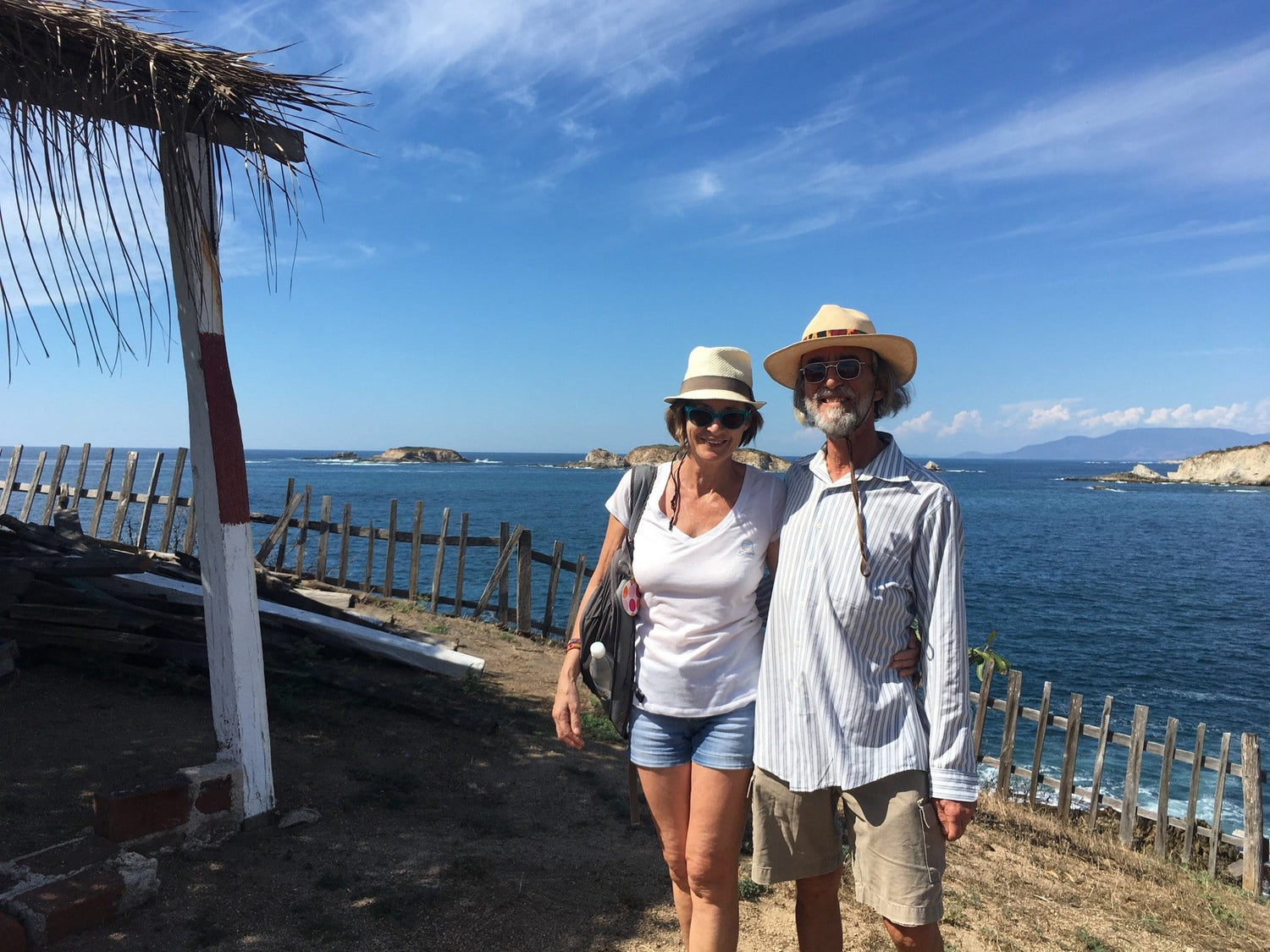Caleta de Campos, Míchoacan.
Curiously in some Mexican maps, the name of this small village on the coast is not mentioned. It is called Bahía Bufadero. We came back for the third year in a row. If there is a place close to Paradise, it is Casa de la Rosa, the house of our host and dear friend, Cynthia DeRozea. We like it so much, we decided to stay longer this year and we keep adding more and more days. We also met a nice couple from the province of Québec, Canada, who are not the type of cheap Québécois we had encounter in the past and shamed the whole francophone community. Of course, we found arrogant and cheap people in every culture and every group and they are the ones everybody sees but we have to remember that it is not the entire population who is plagued with these flaws. Sylvie and Pierre are totally the opposite : generous, funny and brave travellers who appreciate what they got in life. The Mexicans love them and so do we. They rented a car and take us with them to explore places in Míchoacán where we could not go by bus or we would be trapped in the middle of nowhere. The coast is beautiful and kept his wild side. Not many tourists, no developments, in fact not much comfort or commodity, like running water, for the villagers and the fishermen. It is rustic but the people look happy and curious about these four “gringos” who mixed up three different languages : French, English and Spanish, coming up for a visit.
Gringos, we are not. “Gringo” is pejorative, it is for Americans and they supposedly got their name from a poem written by Robert Burns : “Green grow the lilacs” or “ Green grow the rushes, o”, the Americans soldiers sang during the Mexican-American war in 1846-1848. Others say the term is more ancient and was found in the Diccionario Castellano,1748 : In Malaga, foreigners who have a certain accent and cannot pronounced spanish words easily were called gringos, this term was used also in Madrid especially for Irish people. It also seems to come from the Spanish word ” Griego” or Greek in Spanish. In Spanish, as well as in English, if something is not quite understandable, they say, “it is Greek to me”, like we say in French “ Pour moi, c’est du Chinois”. The Spanish people say “Hablar en griego”, meaning to speak in Greek. I found more explanations on different sites on Internet and I realized that no one really knows where the term “ gringo” come from. I have heard of a tree called “ gringo tree” because the bark is red and it peels like a white gringo with sun burns. I found that hilarious.
With our friends we visited Maruata where are the three most beautiful beaches: El Faro de Bucerias and La Manzanillera, hoping these places will stay pristine forever. We also had a walk on the endless beaches of Playa Aguila, Playa Azul and Playa Erendira. Soon, we will move on up North regretting leaving that troubled and enchanting part of Mexico.

Marie-Christine Delanee
/
1 comment

1 comment
I have 14 days to explore between Puerta vallarta and Puerto escondido. I would enjoy your suggestions